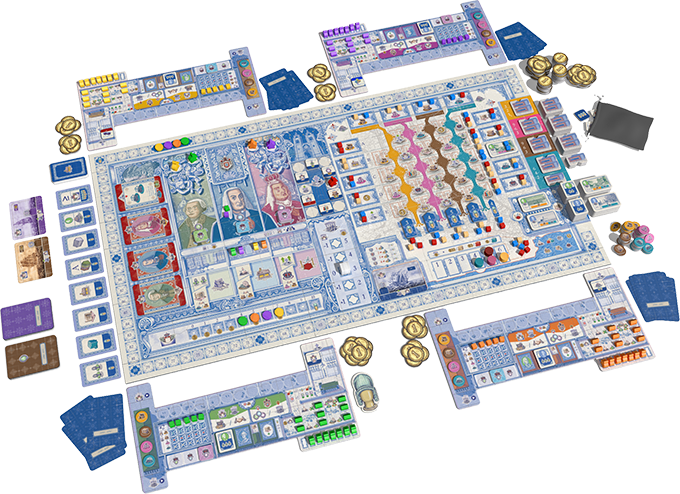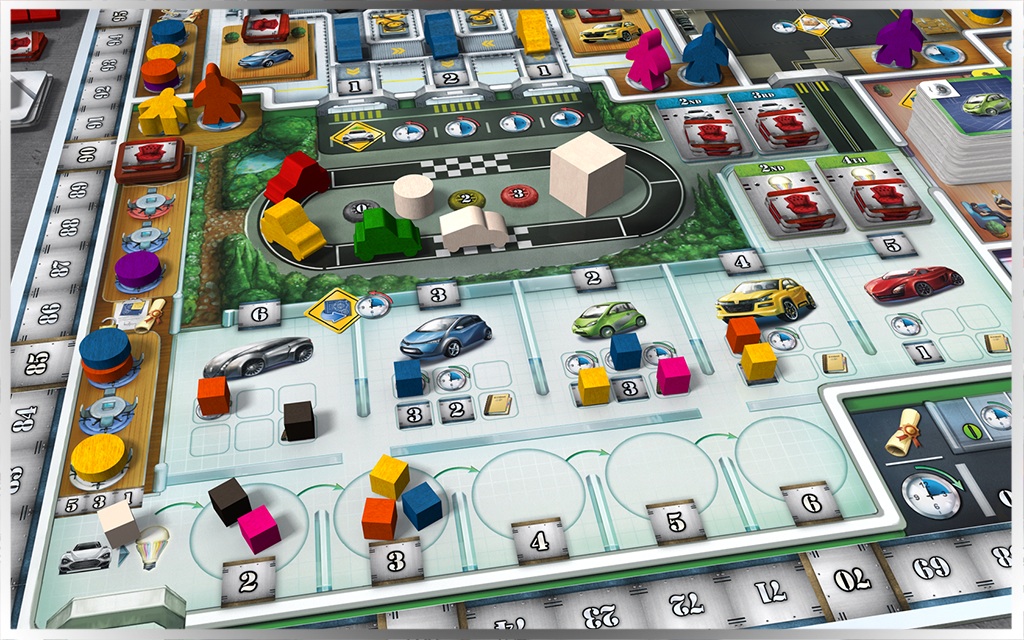There is a wide spectrum when it comes to gaming complexity, ranging from micro games requiring mere minutes of your attention to games so highly involved and complex in their operation that they can leave you mentally exhausted afterwards.
When it comes to the latter camp, it’s hard to have a substantive discussion about heavy Euros in 2017 without bringing up the contributions of the Portuguese native Vital Lacerda. His games have quickly become renown for being incredible intricate both in their mechanics and the themes being presented. This is not by accident.
Determined to demonstrate that heftier Euro games don’t have to choose deep strategies and mechanics over rich themes, nearly every game of his to date proves not only that such a pairing can be done, but that it can be done well. Whether that’s managing a vineyard in Vinhos, to running an automobile factory in Kanban, to his latest title of Lisboa, where players are rebuilding the city of 1755 Lisbon after a catastrophic earthquake, every one of his titles was crafted with the dual purpose of offering substantive mechanics and a substantive theme to go with it.
Given the amount of anticipation around the release of his latest creation, Lisboa, it’s clear he may be on to something.
As part of our first trip to Origins 2017, we were lucky enough to sit down with Vital and ask him a few questions, including how he approaches game creation, what drives him to make the kinds of games he does, and why Lisboa may be his favorite game he’s made to date. And we’re happy to share that with you today.
Demo Time
CR: What made you come to Origins over, say, Gen Con?
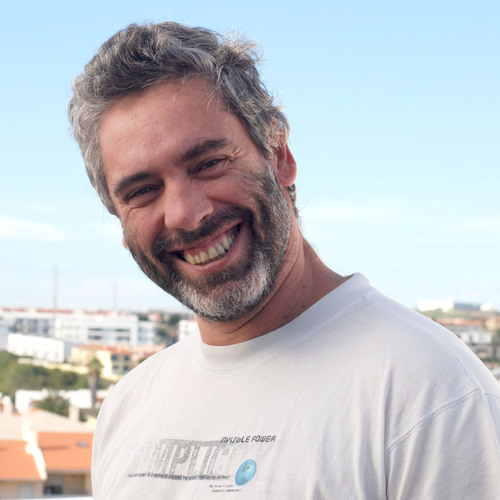 The release of Lisboa…well, it should’ve been the release of Lisboa but we had a little delay on production because the production of the game is really complicated – they have boxes with three different layers of cardboard. So we had to delay the release of the game, but we flew some here to this convention to present to everybody and it seems like it’s doing okay.
The release of Lisboa…well, it should’ve been the release of Lisboa but we had a little delay on production because the production of the game is really complicated – they have boxes with three different layers of cardboard. So we had to delay the release of the game, but we flew some here to this convention to present to everybody and it seems like it’s doing okay.
I’m here to present the game, and I’ve presented the game to many people. I’ve been giving lots and lots of demos.
CR: What has been the number one response from people after they finish demoing with you?
I was not expecting such a good and positive response after playing the game. I really was not expecting that.
CR: You weren’t?
I’m really surprised because I knew that people would like Lisboa, because if you sit here it’s because you know my other games and enjoy them. But I was not expecting such enjoyment from people after they played the game. They seem to be really pleased with it. This is a great surprise for me, and I’m also very happy with it.
Constructing A Vision
CR: For those who haven’t actually heard about Lisboa, can you give a brief overview on what the game’s about?
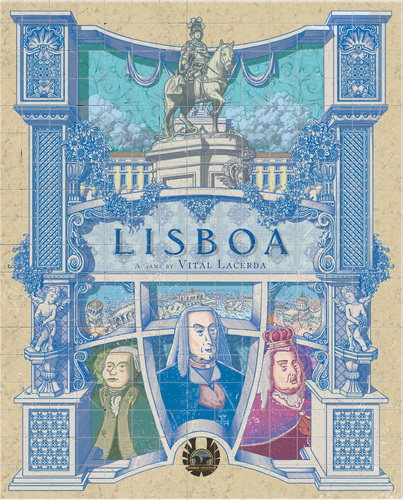 Lisbon suffered a big disaster in 1755 that completely destroyed medieval Lisbon at that time. Lisbon was very early with narrow streets, very disorganized, and after the disaster with the earthquake…well, it wasn’t only the earthquake. People were at churches at that time and would light candles because it was All Saint’s Day, and so after the earthquake the candles fell down, causing three days of fire. And to complete the disaster, a tsunami came in from the sea. The people who ran from the earthquake out to the river were wiped out by the tsunami. It was the worst days in the history of Portugal.
Lisbon suffered a big disaster in 1755 that completely destroyed medieval Lisbon at that time. Lisbon was very early with narrow streets, very disorganized, and after the disaster with the earthquake…well, it wasn’t only the earthquake. People were at churches at that time and would light candles because it was All Saint’s Day, and so after the earthquake the candles fell down, causing three days of fire. And to complete the disaster, a tsunami came in from the sea. The people who ran from the earthquake out to the river were wiped out by the tsunami. It was the worst days in the history of Portugal.
But three of the most important people at the time (the Marquis of Pombal, Manuel da Maia, the chief engineer of the kingdom, and the king) decided to rebuild a new city. They asked for new plans and received a lot of them. One of those was to completely abandon the city, but thank God they didn’t do it. Instead they rebuilt a new modern city that was larger and more organized. It’s precisely what the players are doing in the game: rebuilding the city of Lisbon in 1755.
CR: You’re a native of Lisbon.
Yes. I was born there.
CR: I’m assuming that was part of your decision to make a game about that event.
It was easy for me. I was born there and I live in Lisbon. It was easy for me to get information that I needed. It’s all around me. I can visit the places I know well, the history – we even talk about the history of Lisbon in school – so I had all the information I needed to build a story. And the story is really interesting because the beautiful city that is Lisbon now was born in that way.
CR: Where did the inspiration to make a game about that event come from?
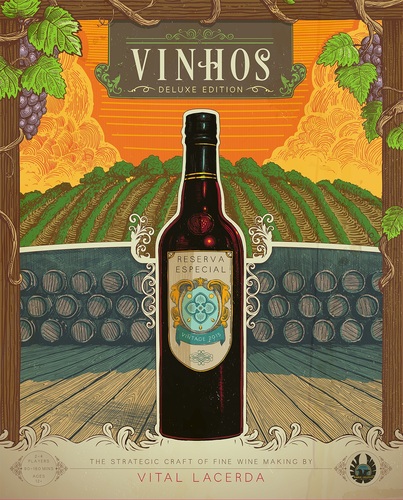 I always make games that I love with that themes that I really love or that interest me. CO2 is about the problem of global warming. I like wine (especially Portuguese wine), so I did Vinhos. I love art, so The Gallerist. And I also like cars. Not the cars necessarily but the process of making them, so that’s Kanban.
I always make games that I love with that themes that I really love or that interest me. CO2 is about the problem of global warming. I like wine (especially Portuguese wine), so I did Vinhos. I love art, so The Gallerist. And I also like cars. Not the cars necessarily but the process of making them, so that’s Kanban.
Since all of my games have a hard theme behind them, I just thought why not make a game with a heavy background in history. History is interesting to most people. And since I always build games from the theme, this one seemed easy. Five years ago I took the history of Lisbon and decided to try the system of rebuilding of the city. I designed the system and playtested to see if it worked. . .It was fun to play with. So I decided to design the game around that.
CR: You’ve mentioned elsewhere that Lisboa is your favorite game that you’ve made so far.
I’ve been playing this game so much lately that it seems like it. . .I was on the fence between this one and Kanban as a personal best. And it seems like this one is more the one that is happening right now so I’m leaning towards this game. I think probably it will be my favorite game. Let’s see how it’ll be with other people.
Driving Passions
CR: People definitely seem responsive. Part of that seems to be because of the passion that comes through when you talk about your game.
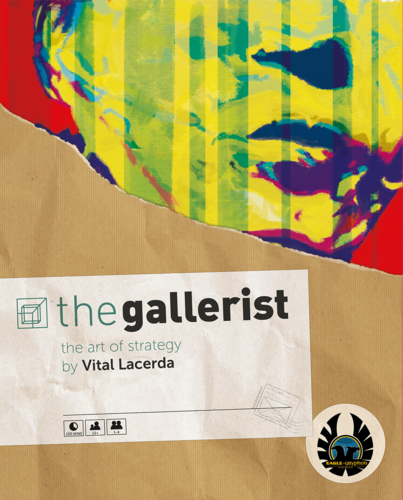 I love to design board games. . .I worked at an advertising agency for 20 years doing art direction. It seemed like a natural step since I’m also a gamer, and so it seemed a natural step to go from advertising – a creative industry – to another creative industry. I really worked towards it. And since my first and second games had some success, then the doors started to open and the publishers started to contact me to ask me for games. I really love to design them, and fortunately right now I use most of my time designing games and less and less time working on advertising them. That has been very good for me.
I love to design board games. . .I worked at an advertising agency for 20 years doing art direction. It seemed like a natural step since I’m also a gamer, and so it seemed a natural step to go from advertising – a creative industry – to another creative industry. I really worked towards it. And since my first and second games had some success, then the doors started to open and the publishers started to contact me to ask me for games. I really love to design them, and fortunately right now I use most of my time designing games and less and less time working on advertising them. That has been very good for me.
CR: Are you surprised at all at that response to your works?
Yeah, I wasn’t expecting it. You always hear that it’s impossible to be a board game designer, that it’s not possible to live off it. So my first games I just thought to make them for friends and to see what happens. It was that path that brought me here. I wasn’t expecting to be here [in this industry] today.
CR: Each of your games looks and feels very distinct. How much input do you have into the layout and the feel of the game?
I follow the processes of production up to delivery…I try to follow all the processes from the creation of the game until the production has ended. The art is one of the most important parts for me in the game. I work directly with the artist, and I’ve been working with the same artist for about 40 years already – Ian O’Toole. He’s an Irish guy that lives in Australia. We talk on a daily basis on the projects that we’ve done, the projects that we’re doing, and future projects. My next game will probably be with Ian too.
CR: There’s also the level of minute details you include, such as the board in Lisboa reflecting the layout of the city.
It’s amazing, right? Ian did a great job by showing what was done at that time. The board is completely filled with Portuguese styles from the 18th century. Even the part where it shows the city was completely destroyed is there. I think the design of the game, the inspiration, the art of the game…well it seems like a work of art. I think board games can have both, can give you entertainment and fun and can also be a work of art. Because you need a real artist to make a game like [Lisboa].
CR: That seems to be an important facet of your designs.
It’s two things I really love. I love art and I love to move pieces around. So if I can move pieces around a work of art…
I think that games can be pleasing to people. It should be pleasant in every way. They should be fun in the gameplay and should be pleasant as a mood piece. What do people say – ‘You eat with your eyes’. Right? So I think people can be more immersed with the theme if the board and all the pieces on it transmit that feeling.
CR: That definitely comes through with your titles. It shows that you can have a very crunchy, deep Euro but still have a solid thematic resonance to it as well.
I only do board games that I really love. Because I keep playing my board games after they are done. And I prefer to play board games like these over board games that don’t have any art or isn’t stimulating your brain. I try to place everything I like into my games.
Beyond The City Limits
CR: So what’s next for you?
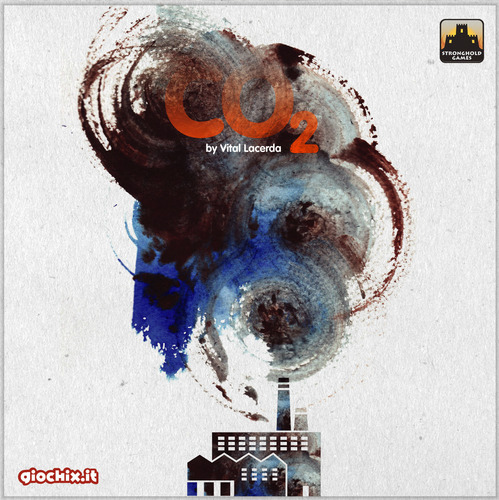 I have a few projects. I’m working hard now – and it’s almost ready – on a new version of of C02. It’s called C02 Second Chance. The game has some tweaks from the first version, but like I did with Vinhos you just flip the board and you have (with the same rules) almost an entirely new cooperative version to play the game. Many people like cooperative games and I had a lot of feedback from players asking if they could play [CO2] cooperatively. So I designed it like that. It will not take long before it’s out there.
I have a few projects. I’m working hard now – and it’s almost ready – on a new version of of C02. It’s called C02 Second Chance. The game has some tweaks from the first version, but like I did with Vinhos you just flip the board and you have (with the same rules) almost an entirely new cooperative version to play the game. Many people like cooperative games and I had a lot of feedback from players asking if they could play [CO2] cooperatively. So I designed it like that. It will not take long before it’s out there.
I also have another project, probably my next game to be published with Eagle-Gryphon Games. I was just playtesting it yesterday till almost 5AM. The name of the game is Escape Land. But it’s not the same kind of game as I do. I decided to take a little break for now because I’m also working on a big, big project, but I delayed it a few years because I need more playtesting. It’s really big.
So right now I decided to do a 60-90 minute game that’s a little bit more relaxed. It’s based on the movie Oceans 11. The players are thieves that have committed a robbery and have hidden the money in the city. But at some point before the game starts they got mad with each other. They finally decide to talk, but with the cops all around, they have to leave the city. But before they do they want to get their investment back. So the players who manage to leave the city with the most money will be the winner. It’s a little fun game.
The last playtests went well. It still has some flaws and needs some work but the base game is there. It has a nice theme that not as hard like Lisboa or C02; it has a light theme that people really enjoy. You can teach the game in 5-10 minutes. That was a challenge for me also because I was not used to it! But it seems to work. Let’s see what happens.
CR: Finally, if you could say one thing to a person who is going to sit down and play one of your games for the first time, what would you tell them?
Be patient. The game at the beginning will be hard for you, but if you really like the game and are willing to play again, you will be rewarded. Because you really need learn to play, to understand the game, before you start taking joy in it.
Besides, the games are so expensive that you’re not buying it to play once, right? I think this is a good thing that I’m giving to people. You enjoy the first game, you learn how to play it, and then you can take full pleasure with the next playthrough. These games have some depth, so you can learn how to play and have fun with it. But the first play can be a little daunting. There are a lot of decisions to make, and without knowing what you’re doing, they are more difficult.
CR: Be patient.
Be patient and enjoy. Take your time. Don’t rush to win in the first play. And be aware that if you really want to enjoy my games, you have to play a second time. I’m honest. If you want to sit down and play a game immediately and then forget about it, my games are probably not for you.

